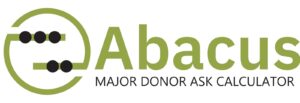These are wild and wooly times we are living in right now. The polarization of wealth over the past 40 years has become apparent to the masses, who are expressing extreme discontent clear across the country from New England to Hawaii. Political pressure is mounting to address this growing inequality.
This economic and financial situation presents an unusual balancing act for advancement professionals. As fundraisers, we must understand, bridge, and navigate the 1% and 99% divide. Our contributors clearly occupy both distinct buckets, yet support and advocate for our organizations in important, albeit different, ways.
One way to view this ongoing multidimensional debate is through the lens of discretionary income. After all, much of the third sector and our work as advancement professionals – at the core – depends upon the financial generosity of individuals and businesses. And in many respects, the size of gifts ties to salary or income statements.
As the polarization of wealth magnifies, so does the distribution of discretionary funds. This in turn limits – or in a few cases accelerates – philanthropic abilities, impulses, and desires. As fundraising professionals, we must be conscious of this evolving environment, and regularly make adjustments to the way we attract, keep, and grow the support of our contributors. And yes, this often means that we must work smarter and harder… often with fewer resources to do so.
For many NPOs, we are now in a time when net operating margins – when they exists – are often matched or exceed by philanthropic income. This is increasingly occurring in healthcare and human service organizations. We need to continue the good fight, find comfort and inspiration from our peers, and continuously learn when and what we can in order to up our game.
It is incumbent upon us to be continually educated about the levers of our economy, challenges faced by the different economic circumstances of our 1% and 99% donors, and effective strategies that may be working for others. So when you are inevitably asked to trim your budget, try your best to protect professional development funds and to occupy some of your time to research and reading.
Your takes:
- Be sure to tune in to macro-economic trends and understand them in regard to national, local, and philanthropic implications.
- Continually revisit your program and constituent strategies to keep them aligned with trends and expectations.
- Protect your professional development funds to you can benefit from the wisdom of others.
For more information about Copley Raff and its spectrum of not for profit consulting services, please see www.copleyraff.com.
Have a development, executive recruitment, or campaign strategy or management challenge? Let’s talk! Click here to connect with Rebekah Kaufman, Director of Consulting Services at CRI.

